10 Former Hillary Clinton Staffers on What's Next
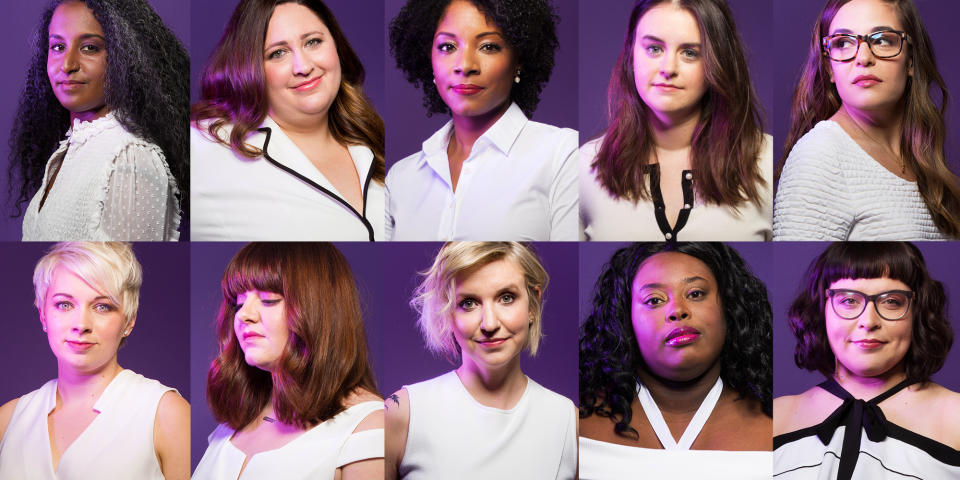
They worked all hours of the day, every day of the week, for up to two years. Some uprooted their lives, moving to a new (and expensive) city. All of them crammed into tiny office spaces in Brooklyn and felt a level of tired they never thought possible. And they all had the same goal: help Hillary Clinton become president of the United States.
When that happened - and for the most part, they felt confident it would - they knew there was the possibility they would continue their work in the White House. Instead, former Hillary Clinton staffers, stunned by the Democratic candidate’s loss, were forced to consider about their future plans in a way they didn’t expect. How could they still contribute? How could they keep the values of their campaign alive without their candidate in the Oval Office?
Here, 10 former staffers reflect on the campaign, their careers, and the future of America with Donald Trump as its president.
Jess Morales Rocketto, 30
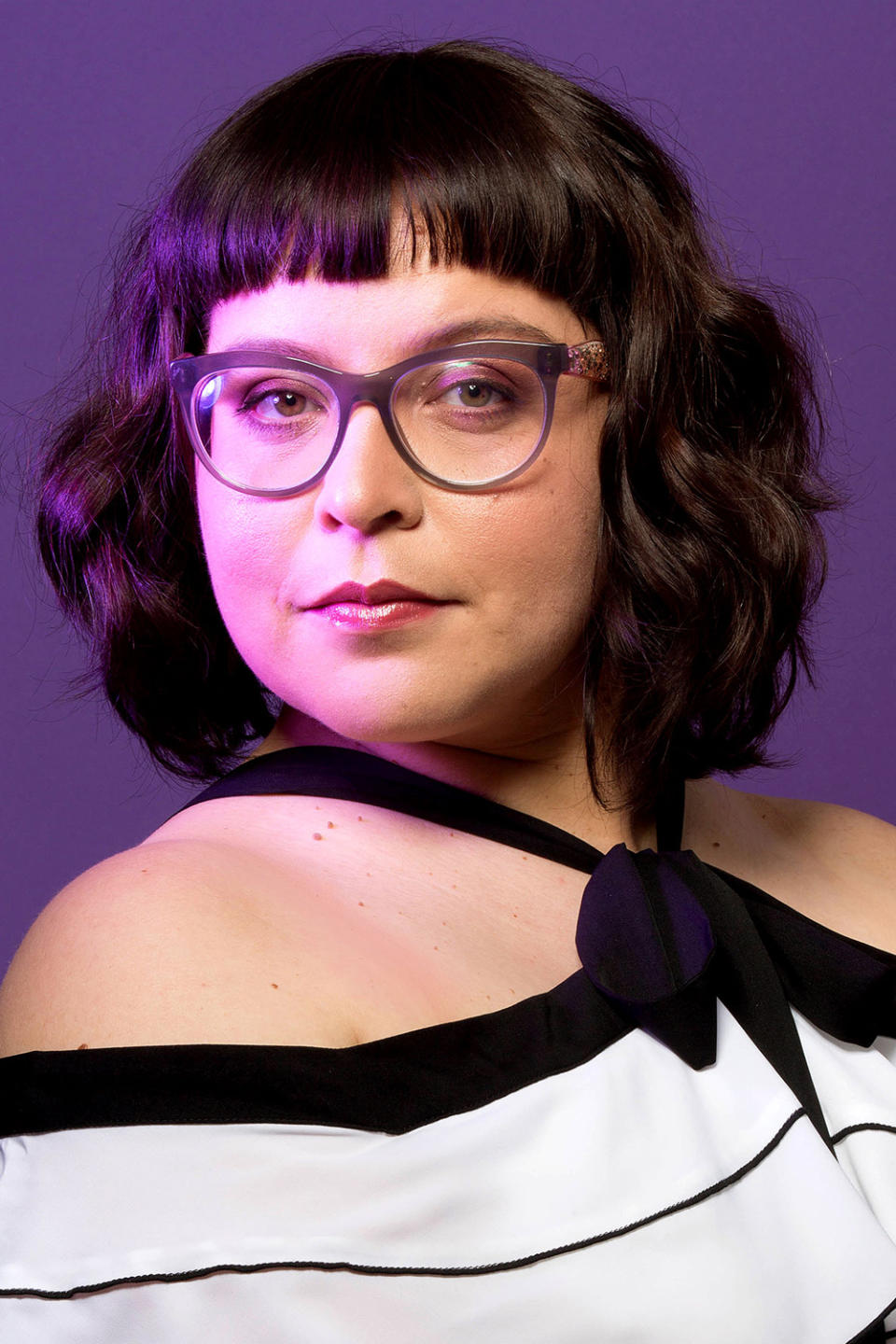
On the campaign: Digital organizing director, and the “Jess” behind text messages from the campaign
Now: Consulting for political and advocacy groups, including United We Dream, a group led by undocumented youth
How did you get involved in Hillary Clinton’s campaign?
When I was 9 or 10, I told my mom that I was going to be the first female president, except if Hillary Clinton was going to be the first female president, then I was going to go work for her, and then I was going to be the second female president.
I remember when Hillary said, “I could have stayed home and baked cookies.” Growing up in a Mexican-American community, most of the women I knew either stayed at home with their families or did jobs that were definitely not giving a speech to a bunch of people in Beijing. Since I didn’t have as many women in my community who had done work like that, a lot of times I would look to Hillary Clinton.
I used to tell my colleagues at the AFL-CIO that the minute she declared, I would drive down and volunteer. And I did - I volunteered during launch, and I started two weeks later.
What was your election night like?
It was almost like a wake. You have Champagne ready in case, or you have the harder stuff ready in case. There was this point where you’re looking at two bottles, and you say, “I guess we’re going to get the hard stuff ready.”
What memories do you take away from the campaign?
Two nights before Election Day, we were previewing this heart-wrenching, beautiful video. My boss had me do this “I believe that we will win” chant, and I used to do that on big nights. I would get on a desk and leave the office in a big cheer. So I started the cheer and the whole place went crazy. But I thought, I don’t think people are getting excited enough. So I ran up to the front of the room and I was like, “We’re about to elect the first woman president of United States, we should be more excited.” Everyone gets silent and stops, and I said, “You have to really believe this. We won’t win if we don’t really believe this.” Then we led the chant, and I’ve never felt so many people be so excited and so optimistic about what was possible. I think in 2017, I want to hold on to that feeling.
On Jess Morales Rocketto: White & Black Off-the-Shoulder Ruffle Dress, ELOQUII, $120
Lauren Collins Peterson, 29
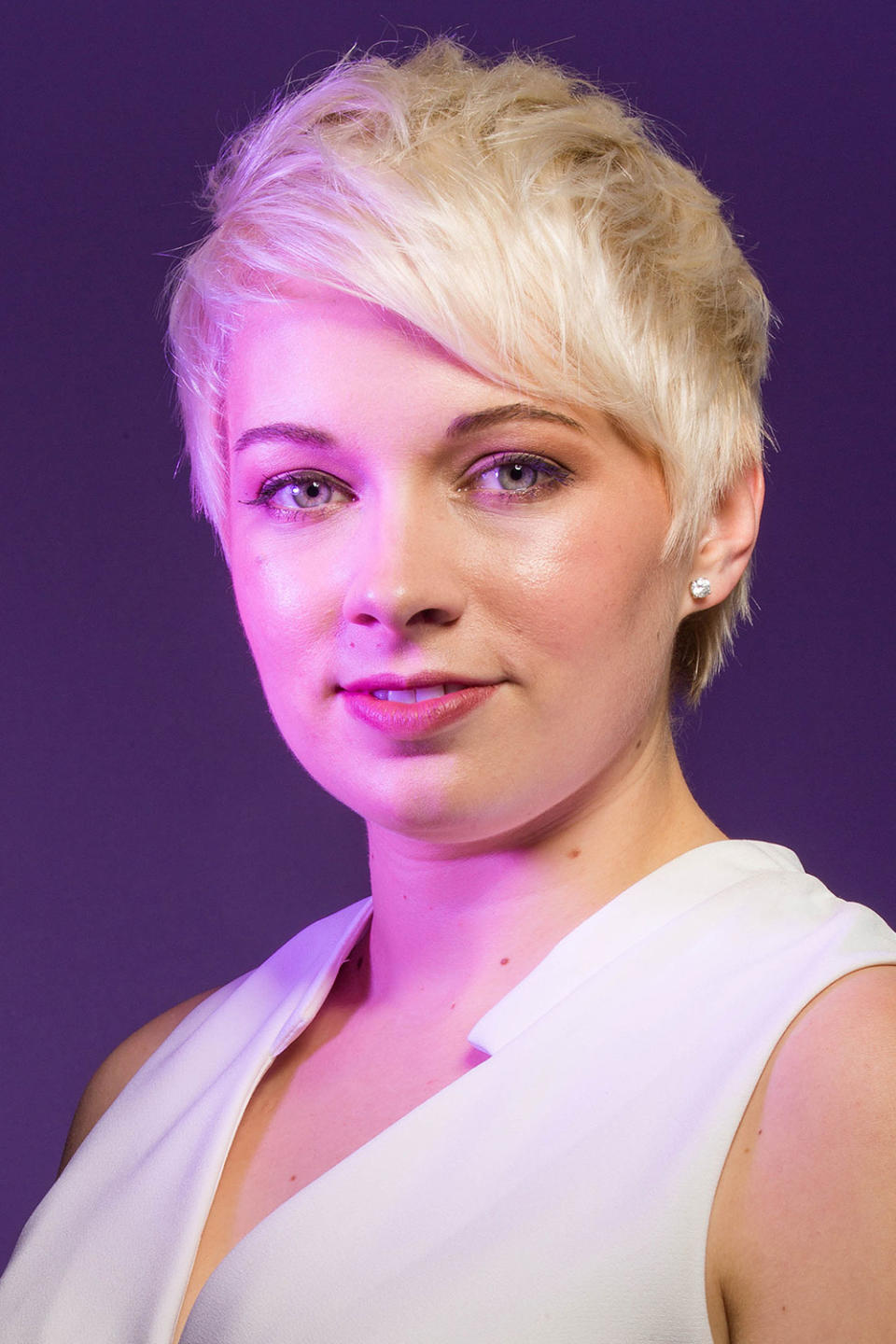
On the campaign: Speechwriter
Now: Doing writing work for Planned Parenthood, her pre-election employer
What was it like to write speeches for Hillary Clinton?
There are a couple things you kind of come to terms with when you’re writing speeches for Hillary Clinton. The first is she always knows more than you. I remember there was one speech we were working on for an event in Wisconsin, where I’m from. I had referenced a decision from I think it was a state Supreme Court candidate that I remembered from living in Madison in 2006. It came back with a little handwritten note in the margin, saying, “Are you sure this case was about contraception? I remember it being about specifically emergency contraception over the counter.” Every time she asked a question like that, she was right and you were wrong.
She’s also amazing at reading the room. That can be frustrating for a speechwriter. She would scrap what you had written on the fly to give the speech people were eager to hear at the time. She takes a lot of flak for wanting to go and lay out detailed policy plans, which, let’s be clear, she also is very good at and loves to do, but I think the untold story is that she actually gave a lot of amazing, fiery rally speeches.
When did it sink in that Trump was going to win?
My girlfriend was on the campaign as well, and the two of us were trying to take turns cheering the other one up, but I think we both knew the writing on the wall. There was this huge convention center and we were in the back-of-house part. You would go out to walk and pace and try not to let people see how upset you were. There was no gap between feeling sorry for myself because we lost and thinking about who would be impacted. Right away, we were all really shell-shocked and frankly terrified for immigrants, people of color, women, so many different groups who will be negatively affected by the outcome.
You came to the campaign from Planned Parenthood. What can the average person do to fight for reproductive rights under a Trump-Pence administration?
The day after the election, I donated to my local Planned Parenthood in Wisconsin. Or donate to your local abortion fund. People are going to need these services no matter what happens and it’s more important than ever to financially support them if you’re able. Call your members of Congress immediately, right now, today. It takes 30 seconds. And then also, just tell your story. We’ve seen that it has impact over the last few years when people speak out about their abortions or their experiences coming to Planned Parenthood for health care. It’s a lot harder to take away something that people are open about needing and using and depending on.
On Lauren: White Wrap Dress, Eloquii, $80
Amanda Litman, 26
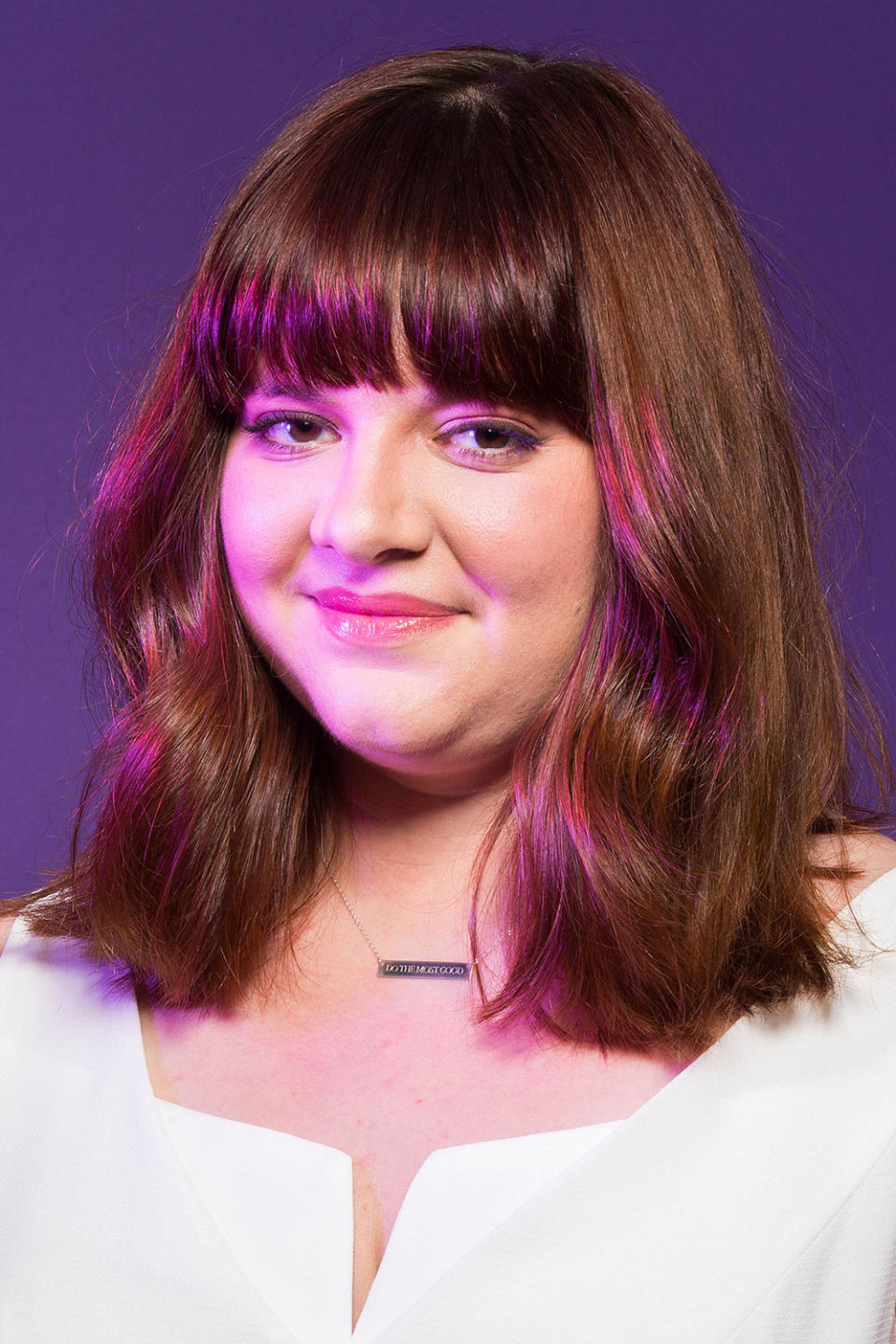
On the campaign: Email director
Now: Starting a PAC to encourage young people to run for office
Why did you choose to join the Hillary campaign?
I love Hillary Clinton. That’s not cool to say, but I love Hillary Clinton. I had this refrain during the campaign of “our candidate, ourselves.” She loved yoga, and she read books like me and my mom read, and she had dealt with problems in law school like the kind of thing I dealt with in college. My guy friends would be like, “Oh, Barack Obama’s at a basketball game. I love basketball!” The way that you feel is the way that I felt when Hillary Clinton went to an Adele concert. This is a woman who understands me, and it’s such a fuck-you to every dude who’s ever said, "Shut up," or "Be quiet," or "You’re too ambitious, or too talkative, or too much."
How did you feel right before Election Day? Were you guys all confident that Hillary was going to win?
We were so sure we were going to win. We were prepping for the transition and we were prepping inauguration stuff. We had a brainstorm three days before about what kind of merch we would sell so we could make sure we could pay for the wind-down stuff. God, the tote bags that would have had “Madam President” on it, it would make you cry.
So what was election night like for you?
We were at the Javits Center until [campaign chairman] John Podesta spoke at 2ish. People started leaving the Javits Center, and we had everything ready to go, to put Podesta’s remarks on the website. Then we saw on Twitter that she had called him to concede. We scurried back, changed everything over, and walked into Times Square where it was terrifying. Every white dude you saw walk by you weren’t sure if they were friendly or foe. My coworker and I took a cab back home and we were sobbing. I had to pull over to throw up on the way home.
How did you cope?
I walked my dog by myself for the first time in three months. I got my apartment cleaned. A few of us left the office at one point on Thursday and we were like, “Fuck it, let’s get pedicures.” I was one of the biggest “Fight Song” proponents. Because here’s the trick - “Fight Song” was not about Hillary Clinton. “Fight Song” was about us. “It’s been two years, I miss my home, but there’s a fire burning in my bones, I still believe.” That is about every person who worked for that campaign, and every volunteer who showed up, and I don’t care how stupid it is, I think it’s lovely. And I can’t listen to it. It’s traumatizing.
On Amanda: White Dress, ADRIANNA PAPELL (Available at Modcloth), $45
Jess McIntosh, 35

On the campaign: Director of communications outreach
Now: Co-founder of Signal Boost, a newsletter and podcast promoting progressive activism, with Zerlina Maxwell
Why did you join the campaign?
I am a campaign creature, and I’m a feminist, so electing the first woman president was a place in history and a story to tell the kids and grandkids. I still think that it’s a place in history, even though the outcome is not what we wanted. She laid down the groundwork and that trail was not an easy one to blaze.
What were the days after the election like?
The thing I was most worried about were all those little girls who were devastated and probably would never want to play again, but we were so wrong. The day after, we had all these thank-you notes and hearts all over the place that said, “Stronger Together.” The last day, this adorable little girl showed up as soon as I opened the door, and this little hand stuck out with a rainbow sticker, and she slapped it onto my biker jacket and said, “Don’t give up.” I immediately dissolved in tears. So these little girls that I was worried about were just fine. They were like, We’ll do it next time! They don’t know how hard it was to get here in the first place and they don’t know how hard it will be to get here again. And I’m glad they don’t. Hopefully it will be easier for them when they try, and hopefully this inspires them enough to be a part of politics and consider running or consider helping a woman win.
What’s next for you?
I know I am going to figure out how to help the resistance, and be as loud and as feminist as I possibly can because we need that. Zerlina [Maxwell] was my partner on the campaign and she’s going to stay my partner for years to come. We launched a newsletter called Signal Boost two months after Election Day. It’s a space to tell people where they can donate and volunteer. It’s going to be a newsletter and a podcast, and we want to make it as big as possible.
On Jess McIntosh: White Tank, Jess's Own; White Skirt, ZARA, $20
Zerlina Maxwell, 35

On the campaign: Director of progressive media
Now: Co-founder of the newsletter and podcast Signal Boost with Jess McIntosh, and on-air political commentator
Why did you decide to join the campaign?
I was watching one of the Democratic debates, the one on foreign policy, and they asked Bernie Sanders a question. And this is no shade to Bernie but he just didn’t know. They asked him about North Korea and I thought, Oh my god, this primary is very close, he could win this, and Bernie doesn’t know what he’s talking about, which was very terrifying. Especially with Trump being in first place for the Republicans all the way through. I have always liked Hillary Clinton, so part of me felt like, I have to take this job, and if I don’t and she’s not successful, then you’ll regret it. I just wanted to do all I could do, and despite the fact that this has ended the way it has, I don’t regret it.
What was Election Day like? Were you confident she was going to win?
I woke up that morning in a good mood, which is ironic now after everything that has happened. I was with my colleagues walking into the Javits Center, and we’re all happy and in our Hillary gear. And this construction worker yells, “Are you guys with Hillary Clinton?” And we’re like, “Yeah!” And then he said, “Go fuck yourself!” And we walked into the Javits Center, and we were like, I can’t believe that happened, and now, in retrospect, that was a Trump voter.
What else do you take away from the campaign?
One of the most impactful things was being able to meet so many amazing black women. We need to listen to black women and we need to empower them - not just hire them. I’m 35 and I’ve had, like, 30 different jobs and I have never been around so many amazing black women.
On Zerlina: White Collared Blouse, H&M, $25
Ida Woldemichael, 34
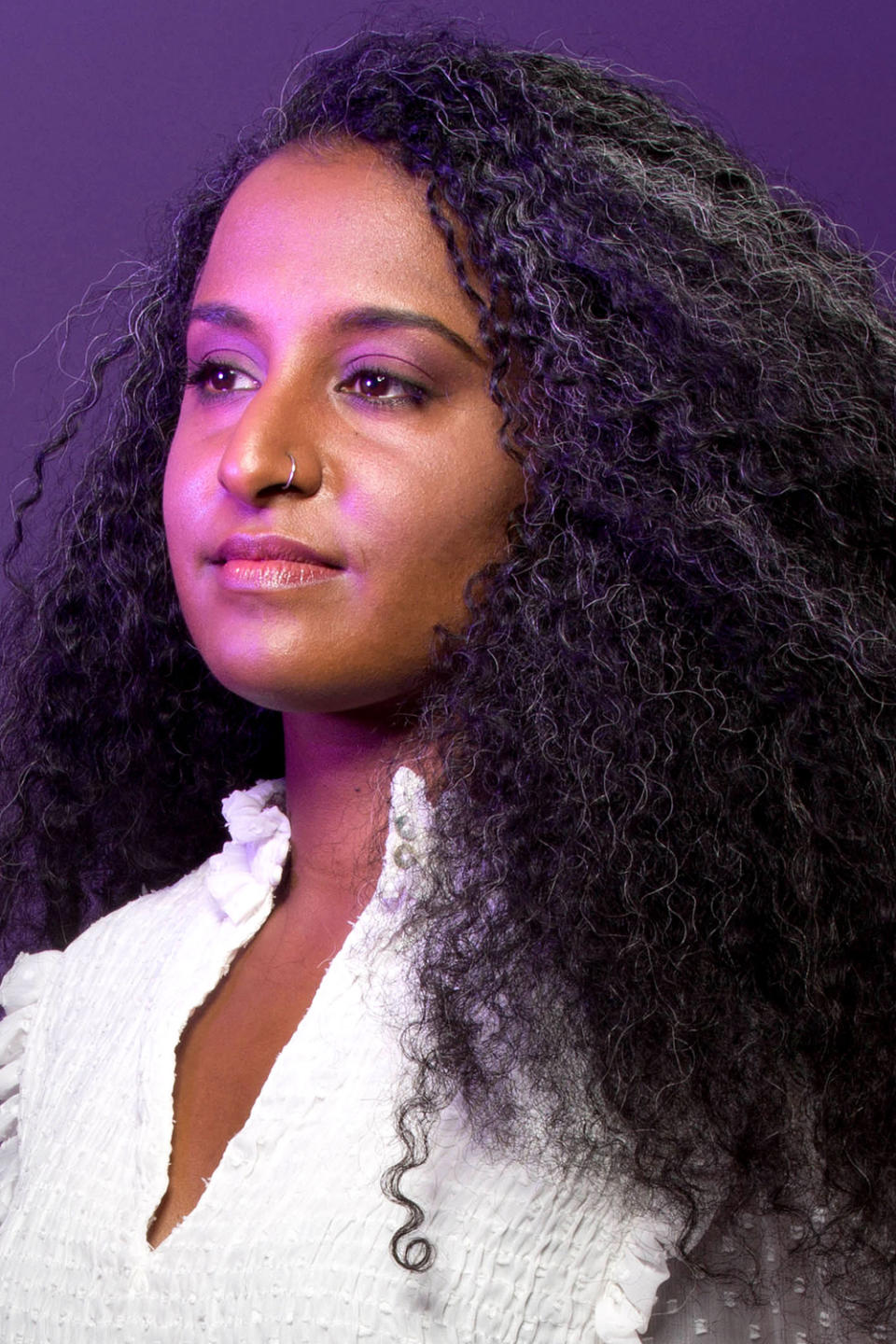
On the campaign: Design lead
Now: Freelance graphic designer
You helped come up with the slogan “I’m With Her.” How did that come about?
There was an email in which we had to design bumper stickers that people would vote on. “I’m With Her” came from that. And then fast-forward a couple months after that, the Jefferson-Jackson dinner took place. At the end of the dinner, the supporters were cheering, “I’m with her.” But the thing was there was no signage or anything, so it was cool to think that something was out there and our supporters kind of grabbed onto it.
Did Hillary’s loss affect your career goals in any way?
I feel like I had sort of a vision after she lost, it was almost like the feeling of passing the baton. Not to say my work is done, I was just glad to have contributed and I hope whoever has the dream of working in the White House will continue this type of work. But then I was like, No! You still have the baton and you still have this sense of responsibility. I think at the end of the day for me, it still means doing design work that is socially relevant. What that means exactly is still a bit up the air.
What can a young person do now to keep the campaign’s message going?
Vote in the midterm elections!
On Ida: White Ruffled Top, ZARA, $30; White Skirt, ZARA, $20
Taylor Salditch, 31
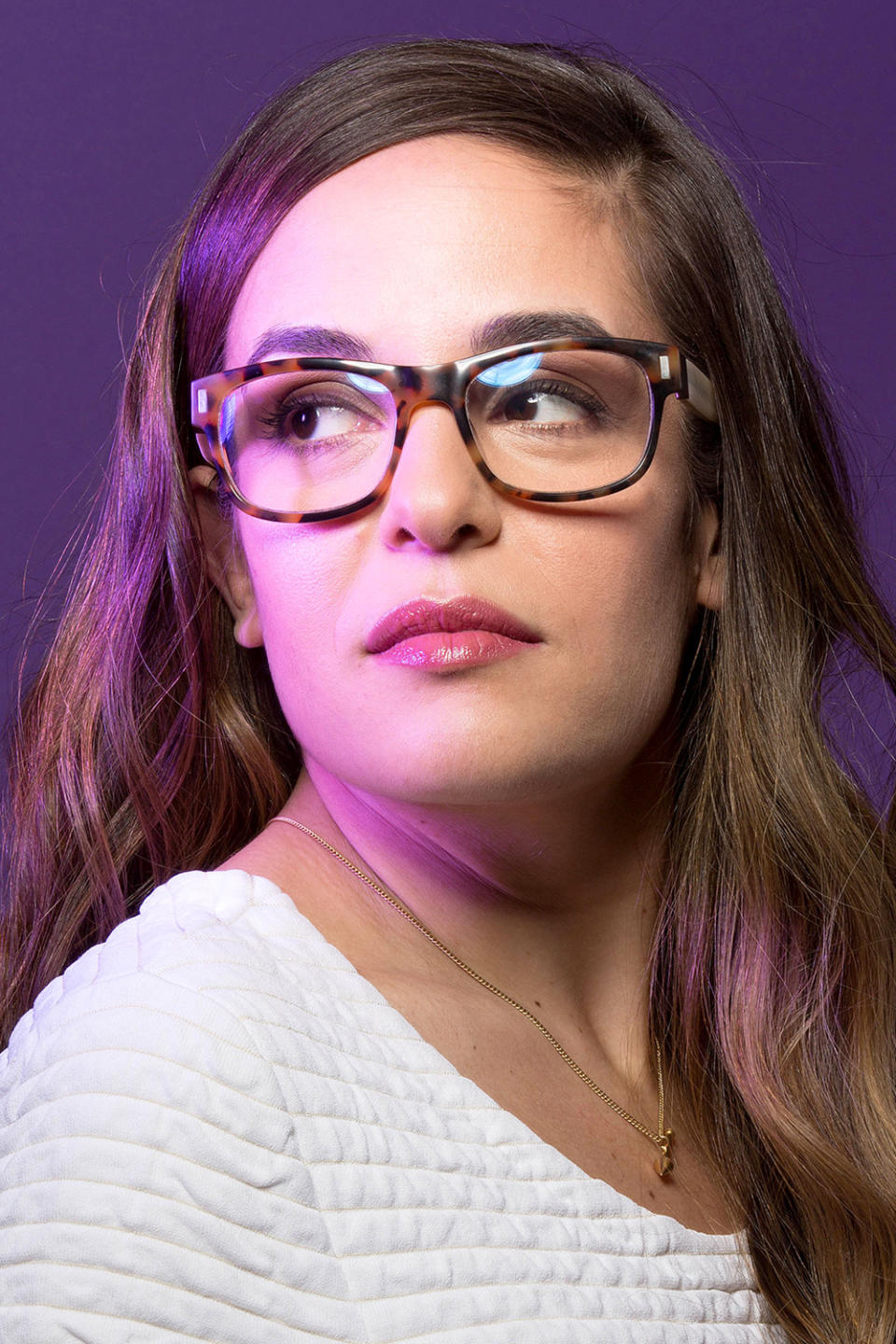
On the campaign: Lead email strategist
Now: Looking for jobs at nonprofits
How did you get involved in the campaign?
I like to say that I Secret-ed this job into existence. I’ve loved Hillary Clinton since I was 7. I used to write her letters about endangered species. I voted for her in ’08, and in the back of my mind, I sort of thought if she ever announced, I would have a skill set that would be valuable in some way, shape, or form. It was a 100 percent not-professional decision. It was a personal life goal to work for this woman who I think everything she’s done to this point really creates space for me to exist in the world and I feel eternally grateful to her. So she announced, I submitted my résumé pretty much immediately, within two weeks, and that was it.
How were you feeling going into Election Day?
Four days before the election, I had this wave of nausea run over me. I thought, What if she loses? I had been on the campaign since July 2015 and never really felt like we were going to lose at all. And once Donald Trump was the nominee, I thought, Isn’t that poetic that a woman who is a feminist and a progressive needs to run against this misogynist? You couldn’t script this any better but ultimately good will triumph. But I never really internalized what that was going to feel like until about four days before and I thought, Well, shit, I should probably really play that out in my head, so I’m emotionally and mentally prepared for what that is.
How did Hillary’s loss impact your career goals?
Those 24 hours completely changed my life. I just wanted to be this small part of this big thing. I wanted to be background noise and be helpful. I went into it, as all women do in new situations, feeling like a little bit an imposter, because I had never been part of a campaign before. I assumed she would win and then I would go back into the space I’d been in before [the tech startup world], or maybe go into consulting, and watch from afar as in her first 100 days she passed a comprehensive immigration reform bill. Then she lost, and I felt this tremendous desire to continue to be engaged and find ways to help communities that are going to be the most vulnerable in Donald Trump’s America.
On Taylor: Taylor's own dress
Danielle Kantor, 30
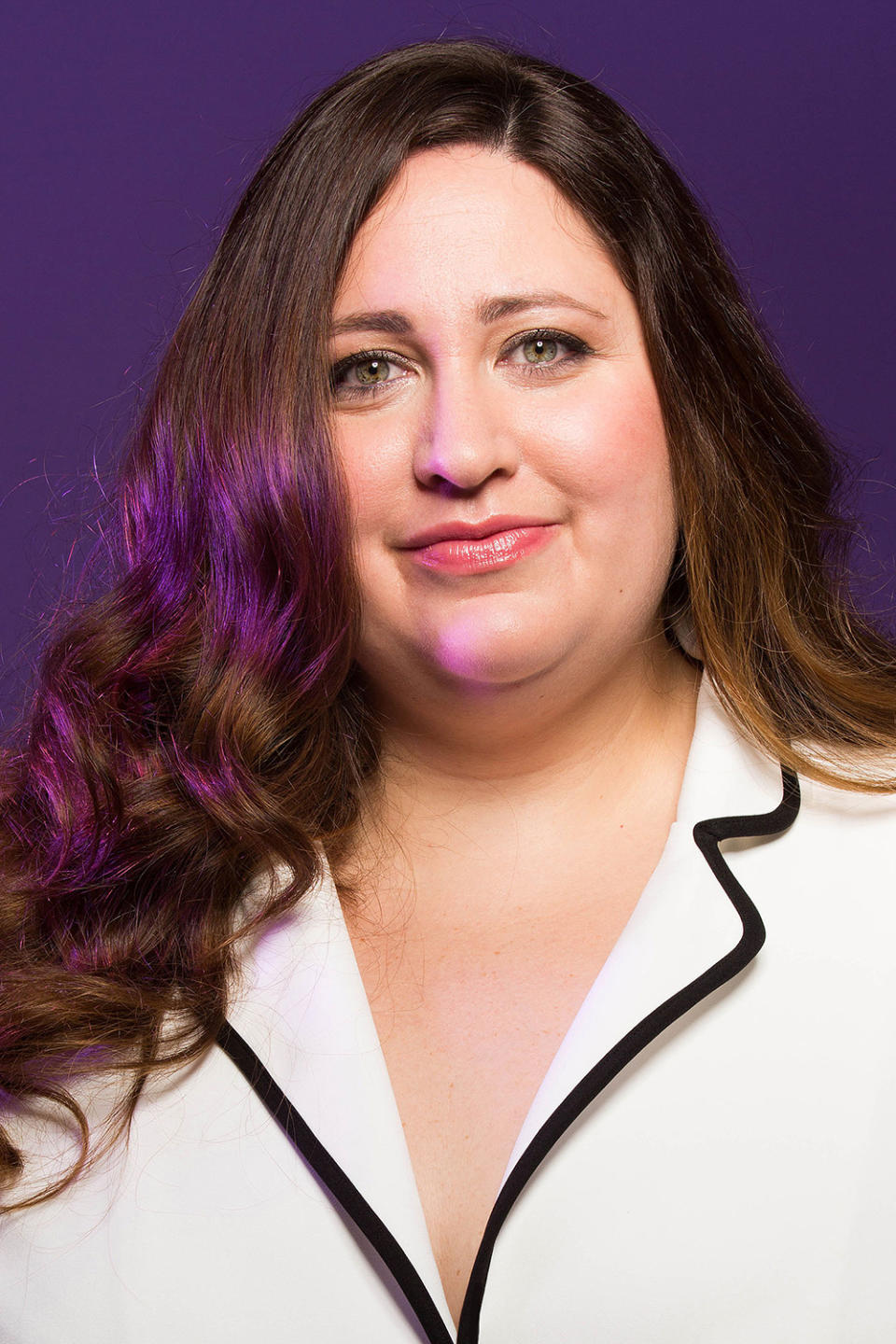
On the campaign: Director of digital content
Now: Freelancing and interviewing for digital jobs in the progressive world
Why did you join the campaign?
Trump became the nominee and the Orlando shooting happened, so I just felt like I couldn’t sit it out anymore. I knew I didn’t want to sit on the sidelines and not help make that history and not know that I did everything to stop a maniac from becoming president.
What was the office like after the election?
A lot of crying. The Wednesday after the election, we slept for, like, two hours and then went to her concession speech. I was actually third row for that. That was the first time I had seen her really up close in a long time and that just felt devastating from that standpoint. I kept trying to get perspective that no one had died but I think it was so huge, it did feel like that. And we had to figure out how to live again. And all these plans we had for ourselves, like plans to go back to D.C., were just gone, and I don’t think people spent a lot of time thinking about what would happen if that were to happen.
Will you stay in politics?
I think it’s easy now that the campaign is over to be like, Well, maybe I’ll get out of politics, but it’s something that I am really passionate about. There are a lot of avenues I am interested in, whether it’s issue-focused like gun safety, education, or health care, or working at an agency that can help build special projects, or working to help build civic technology. I think we’ve gotten really, really good at the digital side of fundraising, but we’re not necessarily there in the technology for organizing. There’s a lot of opportunity to put that into people’s hands so that they can have the power to do good in the world.
On Danielle Kantor: White & Black Blazer, ELOQUII, $130
Danielle Butterfield, 27
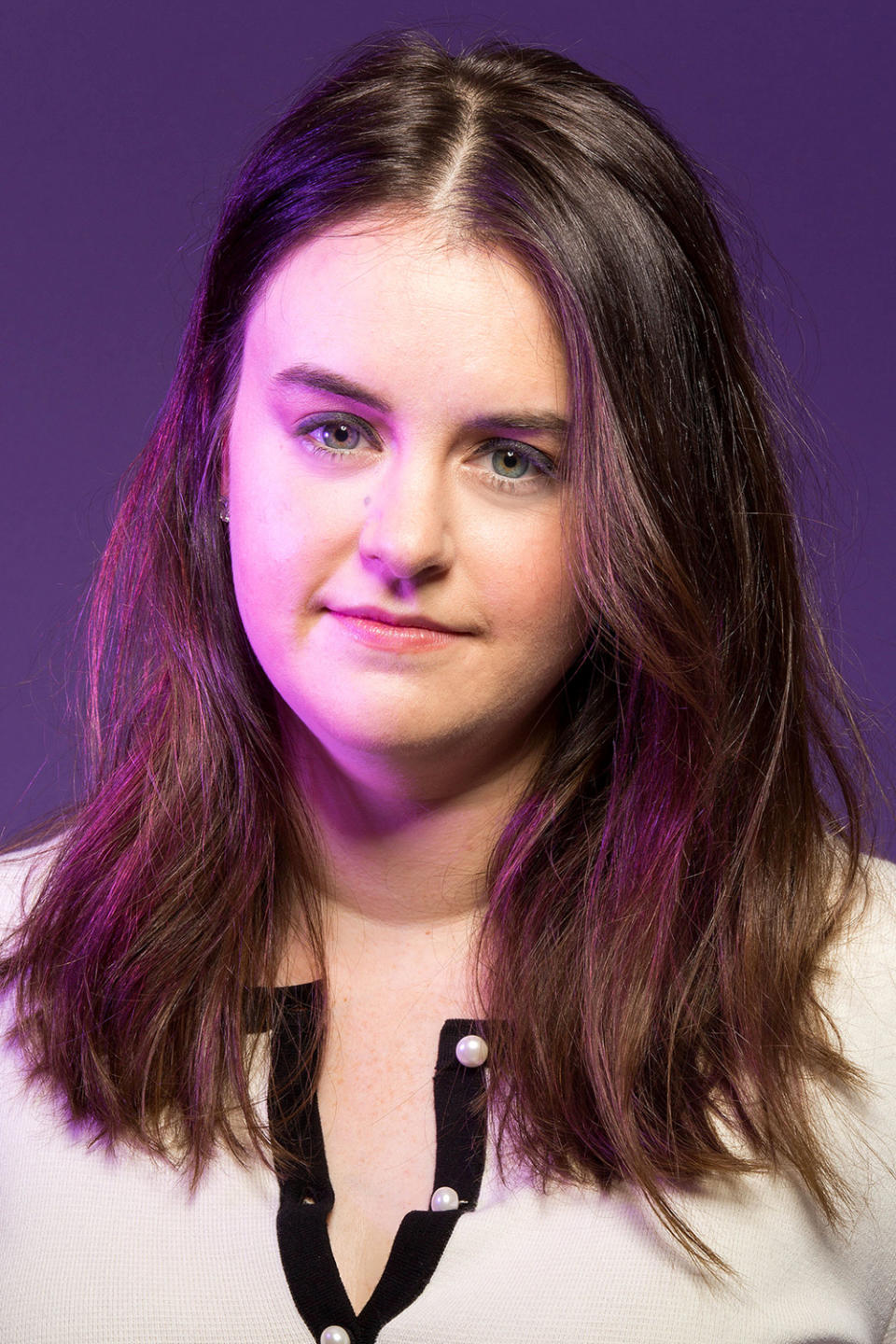
On the campaign: Director of digital paid marketing
Now: Figuring out her next steps
What was it like working at the campaign office?
Walking into the campaign office is the best experience. The energy there is just so great and you’re there 'til, like, 2 a.m. and the lights are just turning off and you’re never alone.
What was it like when Hillary decided to concede?
I know people have been comparing the loss to grief. This is going to sound crazy, but my dad died my sophomore year of college, so I have gone through grief very closely. It was extremely similar to going through death and loss in the sense that you get really sad and angry and depressed. I think that we’re all trying to figure out what stage of grief we’re all in right now, but I think we were shocked for a very long time. We just cried a lot.
How do you feel about the future of the country?
It is so hard. I think that what the president said in his farewell address is so true. History is always going to zigzag and it’s really hard when you’re in the wrong part of the zigzag, but it is kind of amazing to see how many people have come out publicly and expressed themselves about Trump winning. So, that gives me confidence that there are more people out there who haven’t yet expressed their beliefs, but are passionate about politics, and think that that energy is something we have to continue to tap into. I think it’s great that we get to take the next four years to take a step back, and make our party stronger and better, and get ready to take on the next fight.
On Danielle Butterfield: White & Black Cardigan, ZARA, $40
Mina Markham, 32

On the campaign: Senior software engineer
Now: Looking for new tech jobs, outside of politics - for now
How was working on the campaign different from previous companies you’ve worked for?
Especially when you’re an engineer, and you can get paid more and work a lot fewer hours elsewhere, you kind of have to be on board with why you’re there. Literally every person I talked to, we were all there for the same reasons. I learned a lot about engineering from my coworkers, I learned a lot about leadership from the development team. It was a very gratifying experience for me. Also the diversity there was probably the best that I’ve seen in any tech team I have ever worked on. It was great to not be the only black woman on a team for once.
What was your mental state like in the days after Hillary lost?
We were in the office until that Friday. It was nice to be around people who were similarly distressed. I think that if I just gone home after Election Day, and I didn’t have anything to do or anyone to talk to, it would have been much worse than it was. I don’t remember being ghastly upset, but I remember being - it’s hard for me to describe what it was like. I guess "numbness" is the best word.
When you look back, what do you think of your time working there?
A lot of people want to focus on the end of it, but I was there for about 18 months, so I just remember a lot of joy and fun in the office. This feeling of joy and camaraderie with all my teammates, and being able to just truly enjoy being there and in the moment. Even when things were really intense and exhausting, overall, looking back, I just remember joy.
On Mina: White Grosgrain Ribbon, M&J TRIMMING, $1/yard; White Off-the-Shoulder Top, ELOQUII, $50
Hair and makeup: Jackie Seabrooke
Follow Megan on Twitter.
You Might Also Like
